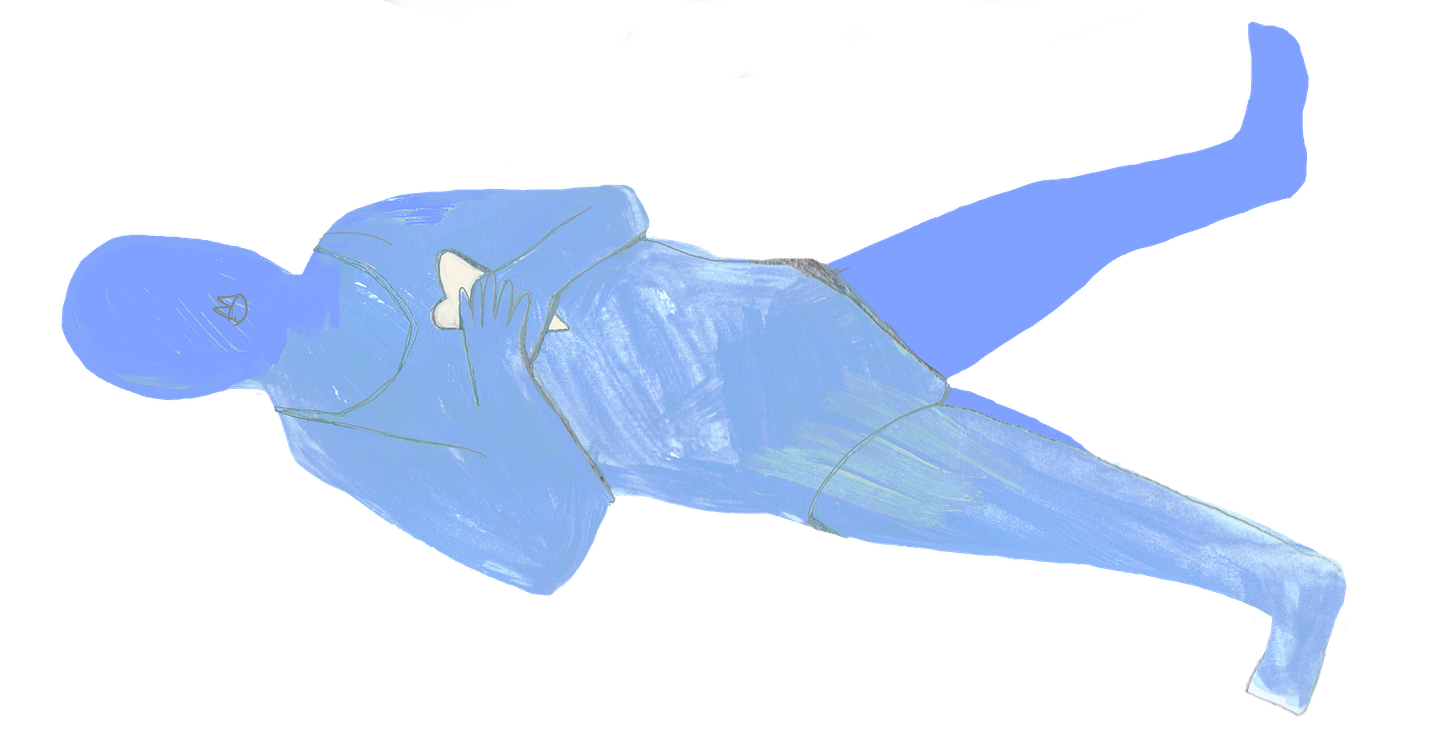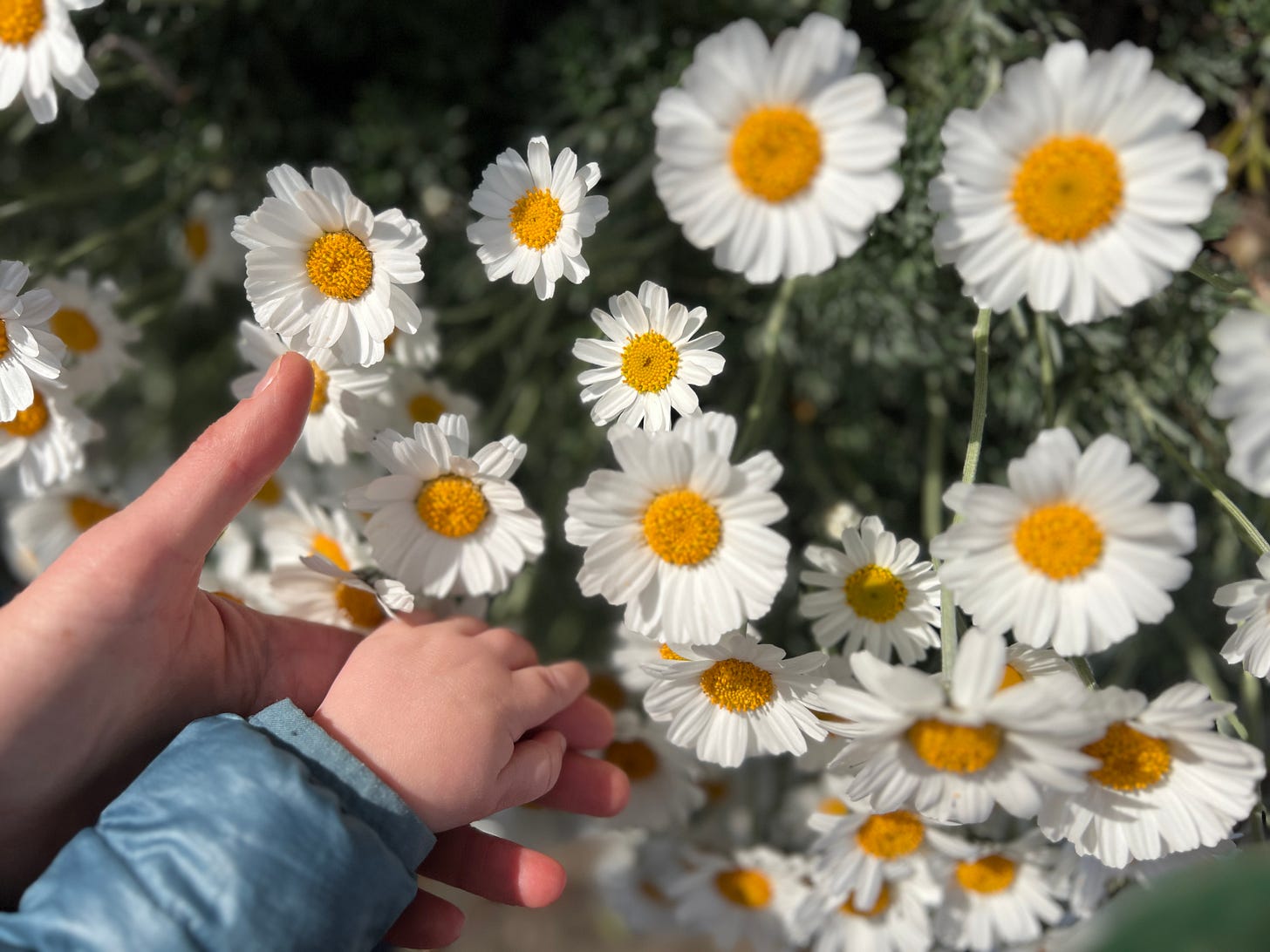High Highs and Hard Hards
v.33 | 9 things my 9 month old has taught me.
Hi hi Yogafolk —
I’m writing to you from the Republic of Motherhood1 — a shocking and absolutely wild nation. Being “mom” is marked by the highest of highs and the absolute hardest of hards. It is a miraculously meditative, manic experience in presence, devotion,2 and practice. Below are (very) brief illuminations3 from my first messy months in mamaland.4 Send sleep fairies, your own stories from parenthood and practice, or just say hi. I’ve missed you.
P.S. This, this, and this have kept my literary brain alive these last months; but for my babe I heave and I huffalo.
Rest when you need to rest. Likewise when you have to eat, poop, move, or be held. These are real needs. Expressing them, and getting them met is important. Vital.
Nine months earthside and my babe is only just starting to recognize his own name. I try to put myself in his super small shoes: what would it be like to live in pure perception? To forget your name, your favorite ice cream, your phone number, your unanswered emails, your overdue bills and settle into your unself?
Without a “fat, relentless ego”5 getting in the way, my son appears totally filled up with awe and wonder. I do my best to live there alongside him.
Every moment is an opportunity for focused attention, and this is a political, moral, and intimate approach to life. Unselfing and humble noticing are intertwined: when we offer our attention fully we “clear our minds of selfish care.”6
Babies are beginners in this world, and one of the first practices they learn is the power of self regulation. My tiny man uses his voice in ways that are so organic, natural and inspiring: he hums himself to sleep, trills his little lips when he’s forced into a situation he’d rather not be in (like the car seat, or the changing table), and finds a way to extend his exhale. This kind of slow, rhythmic breathing stimulates the vagus nerve, and can shift our physiological state from panic to relaxation, our mental state from chaos to calm.7
“Every minute can be a holy, sacred minute…sweeping the floor, watering the vegetables, and washing the dishes become holy and sacred if mindfulness is there.”
— Thich Nhat Hanh
It is in the mundane interactions of everyday life, Erving Goffman thought, that “most of the world's work get done.”8 His “microsociology” shows that our seemingly incidental relational experiences are profoundly and philosophically important. There is value in the tiny moments between one another, repeatedly and constantly waking, changing, feeding, gazing, and embracing. And I think this interrelatedness, this cyclical meditation on the monotonous mundane, is a true and complete practice.
Play is life giving: anything and everything is potentially funny, a possible game, and that makes the world a very joyful place.
I love you is one of our most potent collective spells, belonging to all of us and none of us, an “old-hat three-beat intonation,” an “everyday repetition.”9 It is the nearest and most recognizable expression of adoration, of worship, of savagery — and yet it is not enough.
I have never felt more like an interdependent being, entirely reliant on our mutuality. My babe needs me, and I need you: my partner and stepson, our community, alloparents,10 grocers, delivery folks, friends, family, and kin.
The carrot cake came at the perfect moment. I didn’t even know I needed those silver nip cups! The tie-dye romper is everything. That hug was medicine. Our walk saved me. Thank you for sharing your breastmilk. That midnight talk was life-giving. THANK YOU for taking care of me and my family in some of our tenderest of moments. In turn I look forward to caring for you in your moments of need and joy.
The good. The bad. The blowouts. The first giggles. The sleepless nights. The little paws squeezing you tight. The high highs and the hard hards. Everything is impermanent, it all passes away and shape shifts. Stay with it.
Yours in tired body and full heart,
Erica
D.W. Winicott, The Ordinary Devoted Mother, 1966.
“We have only brief illuminations which we must record between interruption, set down side by side, hoping to make sense of it all someday later.” — Susan Griffins in the Introduction to Mother Reader, edited by Moyra Davey.
Despite the prevalent belief that “no subject offers a greater opportunity for terrible writing than motherhood.” — Judith Newman writing for The New York Times Book Review, as found in The Argonauts by Maggie Nelson.
Iris Murdoch, On 'God’ and ‘Good,’ 1969. Murdoch relates “unselfing” to the Buddhist concept of anātman//no-self.
Murdoch again.
See Maggie Nelson, Joe Moran, Roland Barthes, Kate Briggs, and Jeanette Winterson.
Sarah Blaffer Hrdy, Meet the Alloparents, 2009.
Stephen Porges, The Polyvagal Theory, 2011.
Headings and illustrations for Yogafolk are by Leah Tumerman and Chelsey Dyer.














